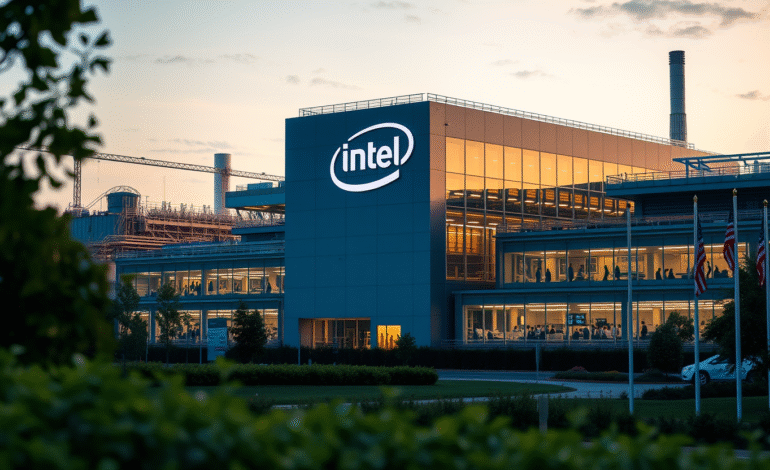U.S. Considering Government Stake in Struggling Intel Amid Trump’s Shifting Attitudes on Federal Subsidies

Intel’s August has been marked by significant developments. Last week, the company’s CEO found himself at the center of political discussions when President Trump suggested his resignation, only to later reverse his stance. Now, reports suggest that the U.S. government is considering investing in Intel, a move aimed at supporting the troubled American chipmaker.
According to unnamed sources familiar with the matter, discussions regarding a potential investment are ongoing, though specifics such as the extent of the government’s stake and the timing remain uncertain. Funds from the CHIPS and Science Act, signed into law by President Biden in 2022, could potentially be used for this purpose. This act allocated $52.7 billion to boost domestic semiconductor manufacturing and alleviate the ongoing chip shortage. Intel received nearly $8 billion from this fund during the final days of the Biden administration.
Initial reports suggest that the government might use CHIPS Act funds to partially finance an equity stake in Intel, although details are yet to be finalized. The White House has clarified that such discussions should be viewed as speculation until officially announced by the administration.
Trump’s stance on the CHIPS Act has been less than supportive. In January, he described it as a “ridiculous program,” arguing that companies do not need financial aid; they require incentives to manufacture within the U.S. For Trump, these incentives take the form of tariffs with fluctuating rates.
In a speech before a joint session of Congress two months later, Trump expressed his disapproval of the CHIPS Act, stating, “Your CHIPS Act is a horrible, horrible thing… We give hundreds of billions of dollars, and it doesn’t mean a thing. [Companies] take our money and they don’t spend it.”
Following calls for his resignation, Intel’s CEO met with Trump on Monday. In a rare subdued post on Truth Social, Trump commented, “The meeting was a very interesting one. His success and rise is an amazing story.” Intel responded positively, stating, “We appreciate the President’s strong leadership to advance these critical priorities and look forward to working closely with him and his Administration as we restore this great American company.”
Intel has faced challenges in recent years, contributing to its need for a new CEO. The company is currently undergoing mass layoffs that will result in the elimination of 24,000 roles by the end of 2025. Given Trump’s shifting views on federal subsidies and Intel’s current financial situation, this potential investment could serve as a lifeline for the company.
In announcing these layoffs, Intel’s CEO emphasized the company’s focus on strengthening its core product portfolio and AI roadmap to better serve customers.
An additional complication for all chip manufacturers is Trump’s plan to impose tariffs on foreign-made chips. The rates could range from 100%, 200%, or even 300%, or they could be nil, depending on the extent of a company’s U.S. production. “If you’re building in the United States of America, there’s no charge,” Trump stated earlier this month. Intel recently adjusted its chip production schedule for its Ohio plant to 2030 amid its financial difficulties.
Reports about a potential Intel investment emerged just days after Nvidia and AMD agreed to pay 15% of all revenue generated from AI chip sales directly to the U.S. government. This arrangement, which Democrats argue may be unconstitutional, has sparked debate.
Stay updated with the latest news and expert insights by following our coverage here at [Your News Website]. Our team of dedicated reporters delve into the latest advancements across the tech landscape, keeping you informed about the gadgets and services that shape your daily life.






